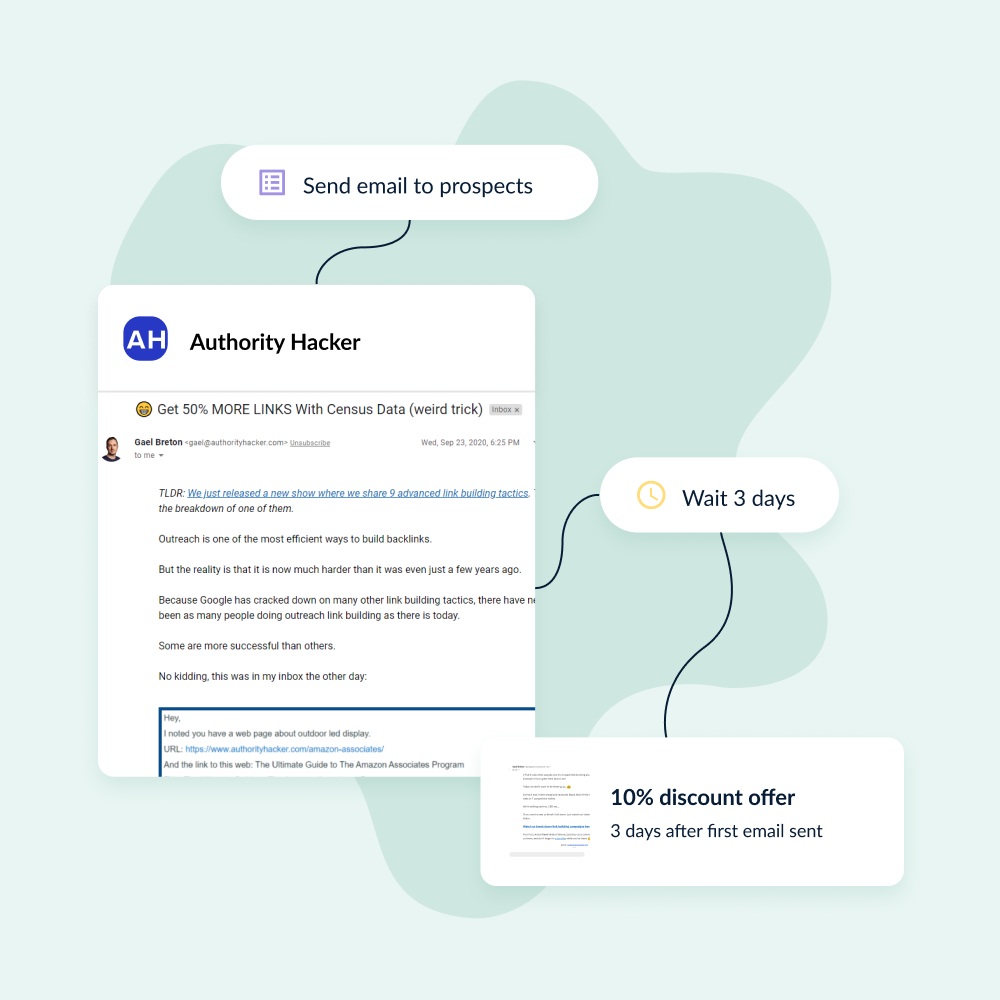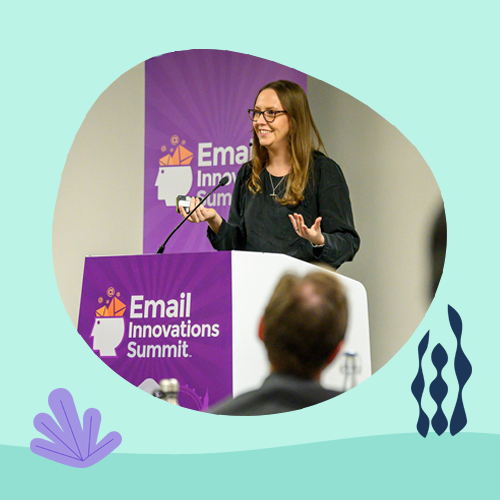Since the advent of the internet and the rise of digital, marketing has become a whole lot more technical. As well as understanding the art of persuasion and behavioural economics, the modern day marketer also needs to know how to interpret data and understand how the technology used in marketing works.
Thanks to digital channels, marketing has become an incredibly diverse playground of technical roles, from website development to data analytics, email production to technical SEO.
Yet while marketing has long been considered an industry of equal opportunity for women, it’s in these more technical fields within the industry where women are far outnumbered.
Take the technical side of email marketing, for example, which includes deliverability and coding email design. These fields have long been dominated by men. In fact, in 2019 the Pearson Frank Java and PHP Salary Survey found that just over one in every 10 developers is a woman.
But this lack of gender diversity is bad for business.
The issues lack of diversity creates
It’s been shown that a lack of gender diversity actually costs companies. Businesses lose out not only on creativity and innovation but profits too.
Research carried out by McKinsey & Company found that companies with greater gender and ethnic diversity outperformed other companies by 33% in 2017. These companies were more likely to experience above-average profitability compared with companies lacking diversity in their executive teams.
So why are women underrepresented in these sorts of roles?
Barriers to entry
The influences that deter women from technical roles can often appear early in life and continue well after they’ve established a career in their chosen profession.
Let’s break those influences down in more detail.
Too few girls studying IT due to stereotypes
There’s the common cultural stereotype of the ‘IT geek’, often perceived as white, male and perhaps a little socially awkward and intensely devoted to computers. And it’s not a stereotype that encourages young girls to choose computer-related subjects at school. Which brings us to the first hurdle – not enough girls are being educated in ICT at school or university.
So it’s little wonder that at graduate level, more men are hired in tech roles – there’s substantially more of them applying.
The second hurdle is the presumption that females are inherently less talented at maths and technology. In June 2019, the CCEA (Council for the Curriculum, Examinations & Assessment) published a report into why more young women do not study computing. And chief among the reasons was the negative attitude young girls have towards computing and the barriers created by how their abilities are perceived.
Unfortunately, it’s a misperception that women working in tech face today. Every woman we interviewed for our International Women’s Day series had stories to share on how they have been discriminated against as a female coder or developer. And often in very obvious ways.
Prejudice against women in tech roles
Just like in any field where men have been the majority for a long time, it often follows that women are simply not taken seriously when they break into that field.
It’s something that Director of Marketing Technology, Jennifer Larson, has encountered during her career. With a background in science, Jennifer is all too familiar with being a lone female voice, often encountering prejudices:
“When speaking to vendors and trying to vet them out, they always ask me ‘well, who’s the technology person?’. There’s an automatic assumption that it’s not me. And I don’t know if men face that same question or not but it always strikes me as odd, when I present myself as the director of technology that I’m asked ‘well, who will be doing the technology work?’.”
It’s an experience echoed by Email Developer and Senior Email Marketing Manager, Leah Miranda. She’s certified in Front End Javascript Web Development. Yet at conferences she’s attended as the dedicated email tech expert, she’s had to sit back as the audience directed tech related questions to her male co-speaker – someone who knew a lot about design, but not so much about the technical side of things.
Email Marketing Leader, Kait Creamer, gets it too: “I’ve definitely had some hard conversations with people outside my work (especially vendors) who simply don’t believe that women can be good developers.”
Women in tech have more to prove
Even if you are an expert and know your stuff, as a woman, you’re likely to find that you need to justify your knowledge more than your male counterparts.
In the tech fields of marketing, women like Leah have found themselves having to prove how they arrived at an answer. Instead of their answer being taken as fact, like the men around them.
For Anne Tomlin, another way this manifests is in being asked the same question phrased differently multiple times before her answer is believed.
For LoriBeth Blair, it’s a prejudice that is most noticeable on public forums, where “… some people will argue with women about technical matters, or about really anything, a lot more than they will argue with other men. That’s probably been the most frustrating thing that I’ve dealt with.”
When faced with these prejudices, it’s no surprise that imposter syndrome and the feeling of not belonging become additional barriers.
Workplace culture
For Alice Li, the problem is also the less-than-welcoming workplace environments and challenges to promotion:
“If you are a woman who overcomes these barriers to actually end up in a STEM occupation, the culture of many of these male-dominated spaces can either lead to an uncomfortable work environment – (“Brogrammer” culture is a good example) – or roadblocks to advancement that are rooted in unconscious bias.”
And often times, a lack of cultural understanding in the workplace can alienate women from the BAME community. For Crystal Ledesma, that presented itself in an ill-conceived Cinco de Mayo office celebration where food from all over Latin America was presented, as though Mexico and Latin America were the same.
Racial stereotypes and the challenges women of colour face
If women as a whole are woefully underrepresented in the tech sector, then women of colour are even less visible. Referring back to that McKinsey & Company report, only 4% of technical roles are filled by women of colour, despite them representing 16% of the general population. And they are almost completely absent at the senior leadership level.
For Alice Li, an Asian American woman, racial stereotypes are a very real challenge:
“There’s this phenomenon called “The Bamboo Ceiling” – as opposed to “The Glass Ceiling” – where Asian employees are regularly overlooked in opportunities for leadership roles due to stereotypes of Asians as being passive or not fitting what the popular perception of what a “leader” should look like.”
While for Crystal Ledesma, a woman of Hispanic heritage, this manifested in a previous developer role where she faced the assumption that she was a receptionist, when in fact she was busy with development work.
Breaking down these stereotypes
The women interviewed here are proof enough that coders and developers are not the friendless white men lacking in vitamin D that many young girls may picture.
These are women of different ethnicities and sexual orientations with a wide support network.
They’re women leading teams and working with some of the world’s biggest brands.
And they are women sharing their expertise on international stages and being applauded for it.
Although they may have encountered prejudice along the way, ultimately it’s not been enough to hold them back. For some, those biases spur them on:
“People don’t expect you to be technical, but I’m a big fan of subverting expectations” says LoriBeth Blair. “In a lot of cases it works in my favour because people underestimate how technical I am. And then they’re really surprised when I’m able to throw down like a DNS geek.”
As an email deliverability advisor, for LoriBeth, her job is all about problem solving. And a passion for problem solving, along with critical thinking, are two of the essential skills required for a successful career in coding. You’ll need a basic understanding of algebra and arithmetic but it’s not the only skill that’s needed.
Despite the challenges and stereotypes, everyone agrees that MarTech is a rewarding industry for women. And it’s an industry that will provide even more opportunities in the years to come.
What the future holds
In a future that sets to be dominated by computers, coding is one skill that looks to be future proof. As the language of our modern digital world, many future jobs are expected to demand coding skills. And not just in traditional programming or IT roles.
Take email marketing, for instance.
If you look beneath the veneer of good copy and pretty pictures, you’ll find a world of coding that goes into the emails that arrive in your inbox. It could be the frontend development of what users see when that email arrives. Or the backend development of making sure that email is delivered in the first place. Either way, make no mistake that coding is a skill as highly in demand in the marketing sector as it is in IT.
Developers and data analysts are some of the most in-demand tech jobs this year and as digital marketing continues to grow, these are specialist roles that will only grow in demand too.
To supply that demand, and to bring greater creativity and innovation, we need more young girls and women to take on these roles.
Inspiring more women to join the MarTech sector
Marketing technology is the perfect arena for women who enjoy the creativity of marketing and the technical demands of IT. Advancing the use of marketing technology in a business shapes the way the rest of the marketing team operates. And impacts what a marketing team can achieve.
But where do you begin if it’s a field you want to crack into?
Well, for starters you can join a network. Women Who Code and Women of Email are two great spaces to meet other women in similar fields.
There are also plenty of resources out there that help you to learn to code for free. One such resource is Code Academy. You can join the online community and work on projects collaboratively to get a feel for what you might enjoy.
And lastly, take the women interviewed here to serve as role models. Look at their career trajectories and see what you can follow. Or where you might need help.
One thing that’s guaranteed in the MarTech and email marketing industry is that people like to help. You won’t be alone.
So if a career in MarTech sounds like the one for you, you’ll be welcomed with open arms.










No Comments
Leave a comment Cancel